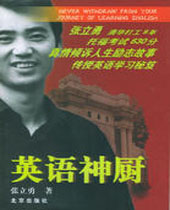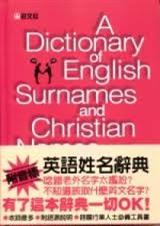英语六级-第5章
按键盘上方向键 ← 或 → 可快速上下翻页,按键盘上的 Enter 键可回到本书目录页,按键盘上方向键 ↑ 可回到本页顶部!
————未阅读完?加入书签已便下次继续阅读!
This is the fastest train (that) there is to Nanjing。
定语从句的简化: 定语从句与不定式结构; ing分词结构; ed分词结构以及无动词分句等有着转换关系。
He was the only one to realize the danger ( who realized the danger)。
The woman driving the car ( who was driving the car) indicated that she was going to turn left。
The man injured by the bullet ( who was injured by the bullet) was taken to hospital。
All the women present ( who were present) looked up in alarm。
Ⅶ 倒装
全部倒装和部分倒装: 如果谓语在主语前面; 就是倒装语序。 倒装语序又分为全部倒装和部分倒装。 在全部倒装的句子中; 整个谓语都放在主语的前面:
Here are some registered letters for you。
In came a man with a white beard。
在部分倒装的句子中只是谓语中的一部分(如助动词; 情态动词; 或系动词be等)放在主语前面; 其余部分仍在主语后面:
Under no circumstances must a soldier leave his post。
I couldn’t answer the question。 Nor could anyone else in our class。
Only in this way is it possible to acplish the abovementioned glorious task。
以neither; nor; so等开始的句子: 由so引起的表示前面所说情况也适用于另一人(或东西)的句子(肯定句); 由neither; nor引起的表示前面所说情况也适用于另一人(或东西)的句子(否定句); 助动词或be置于主语前。
“We must start for the worksite now”。 “ So must we。”
I am quite willing to help and so are the others。
He didn’t drop any hint。 Nor (Neither) did his secretary。
“I won’t do such a thing。” “Nor (Neither) will I。”
如果一个句子只是重复前面一句话的意思; 尽管是用so开头; 语序也不要颠倒。
“It was cold yesterday。” “So it was。”
“Tomorrow will be Monday。” “So it will。”
当句首状语为 never; little; not only; not until; hardly; scarcely等否定词或有否定意义的词语时; 一般引起部分倒装。
No longer are they staying with us。
No sooner had he arrived there than he fell ill。
Under no circumstances could I agree to such a principle。
表示位置或方向的副词提前; 谓语动词为 go; e等表示位置转移的动作动词而主语又较长时; 通常用全部倒装:
There was a sudden gust of wind and away went his hat。
The door burst open and I rushed the crowd。
There es the bus
Now es your turn。
1。 如果主语是代词; 仍用正常语序:
There es your turn。
有here引起; 谓语为be的句子; 也要倒装:
Here is China’s largest tropical forest。
Here are some picturebooks。
2。 如果主语是代词; 仍用正常语序:
Here we are。 This is the new railway station。
“Give me some paper。” “Here you are。”
3。 表语和系动词提前:
介词短语: On the other side was northern Xinjiang。
Near the southern end of the village was a large pear orchard。
形容词: Very important in the farmer’s life is the radio weather report。
Worst of all were the humiliations he suffered。
副词: Below is a restaurant。
Southwest of the reservoir were 2;000 acres of sandy wasteland。
分词: Housed in the Cultural Palace are a library; an auditorium and recreation rooms。
Hidden underground is a wealth of gold; silver; copper; lead and zink。
Lying on the floor was a boy aged about 17。
Standing beside the table was an interpreter。
6) 句首状语若由 only + 副词; only + 介词词组; only + 状语从句构成; 引起局部倒装:
Only yesterday did he find out that his watch was missing。
Only through sheer luck did he manage to get some tickets。
Only because there were some cancelled bookings did he get some tickets in the end。
有not only开头的句子或分句; 往往引起局部倒装:
Not only did he plain about the food; he also refused to pay for it。
Not only did the garage overcharge me; but they hadn’t done a very good repair job either。
Ⅷ 比较级和最高级
无比较级和最高级的形容词及副词: plete; perfect; utter; etc
比较从句
as…as; almost/just/nearly as…as; not so/as …as:
We’ll give you as much help as we can。
I haven’t made as much progress as I should。
We’ve produced twice as much cotton this year as we did ten years ago。
My mand of English is not half so (as) good as yours。
than; so much/a lot more than; no more… than; not more…than; less than
more…than; less…than可表示“与其说…不如说…”:
He is more good than bad。
He was less hurt than frightened。
The present crisis in capitalist countries is much more a political than an economic crisis。
“no + 形容词或副词比较级 + than”所表示的可以是该形容词或副词的相反的含义:
no rich than as poor as
no bigger than as small as
no later than as early as
John is no better than Tom。
I have taken no more than six courses this semester。
the more… the more (越是…就越…)
Actually; the busier he is; the happier he feels。
The more they talked; the more encouraged they felt。
more of a; as much of a; less of a; etc: 当as much of a…as; more/less of a …than等结构与单数可数名词搭配时; 名词只能置于比较结构中间。
He is more of a sportsman than his brother。
Ⅸ 名词性从句: 名词性从句包括主语从句; 宾语从句; 表语从句; 同位语从句。
主语从句有三类:
由what等代词引导的主语从句: what表示“…所…的(东西)”; 在结构上等于一个名词加一个定语从句; whatever表示“所…的一切”; whoever表示“一切…的人”。
What you need is more practice
What is hard is to do good all one’s life and never do anything bad。
Whatever was said here must be kept secret。
Whatever I have is at your service。
Whoever es will be wele。
Whoever fails to see this will make a big blunder。
由连词that引起的主语从句: 这类主语从句在大多数情况下都放到句子后部去; 而用代词it做形式上的主语:
That we need more equipment is quite obvious。
It is impossible that I may not able to e。
It doesn’t seem likely that she will be here。
在口语中连词that有时可以省略掉:
It’s good you’re so considerate。
It’s a pity you missed such a fine talk。
由连接代词或连接副词(或whether)引起的主语从句: 这类主语从句; 也可以放到句子后部去; 前面用it做形式上的主语。
When we shall have our sports meet is still a question。
It is still a question when we shall have our sports meet。
Whether he will join us won’t make too much difference。
It won’t make too much difference whether he will join us。
2宾语从句: 和主语从句及表语从句一样; 宾语从句也有以上三类。
a) 连接代词或副词引导的从句只是在某些动词后能用作宾语。
Tell me what you want。
I just can’t imagine how he could have done such a thing。
Have you decided whom you are to nominate as your candidate。
能跟这类宾语从句的常见动词有: see; say; tell; ask; answer; know; decide; find out; imagine; suggest; doubt; wonder; show; discover; discuss; understand; inform; advise等。 这种动词后也常用whether或if引导的从与作宾语:
I don’t know whether these figure are accurate。
I’m wondering if the letter is overweight。
这种从句有时前面可以有另一个宾语:
Has she informed you when they are to hold the meeting?
Please advise me which book I should read first。
有时这种从句也可用作及词的宾语:
Whether that is a good solution depends on how you look at it。
He was not conscious of what an important discovery he had made。
I was curious as to what he would say next。
b) 用that引导的从句作宾语的情形最为普遍; 在很多动词如boast; say; think; insist; wish; hope; suppose; see; believe; agree; acknowledge; admit; deny; expect; explain; confess; order; mand; suspect; dream; suggest; propose; know; mean; notice; prefer; request; require; report; urge; 以及doubt的否定和疑问式后面都可以用它。
Ⅹ 情态动词:
may/might表示允许和可能:
允许: 询问或说明一件事可不可以做。
May I trouble you with a question?
You may take this seat if you like。
He asked if he might glance through my album。
You might as well speak your mind。 (比may…显得婉转一些)
可能: 表示一件事或许发生(或是某种情况可能会存在)。
You may walk ten miles without seeing a house。
She was afraid they might not like the idea。
A bad thing might be turned to good account。
might 表示请求:
Might I ask for a photograph of your baby? (比May I …更客气一些)
can’t; couldn’t表示否定的推测:
She can’t be serious。
A more suitable book can’t be found。 (It is not possible to find a more suitable book。)
He couldn’t (can’t) be over fifty。
should; ought to: 表示应该做的事; ought to比should口气稍重一些。
You should (ought to) do as he says。
You shouldn’t (oughtn’t to) talk like that。
但这两者间也有一些差别; 在表示责任; 义务等该做的事情时; 常用ought to; 在表示某件事宜于做时; 多用should; 在下面的句子中这两个词就不宜换用:
You are his father。 You ought to take care of him。
We should not use too many big words in our everyday speech。
will; would
shall; should表示意愿
情态动词后接进行式; 完成式和完成进行式:
情态动词可以和动词的进行式构成谓语; 表示”应该正在…”; “想必正在…”这类意思:
Why should we be sitting here doing nothing?
This isn’t what I ought to be doing。
She might still be thinking about the question you raised。
They must (may) be waiting for us; let’s hurry up。
They can’t be using the room now。
情态动词有时和动词的完成形式构成谓语; 表示”应当已经…”; “想必已经…”这类意思:
I should have thought of that。
They shouldn’t have left so soon。
She must have arrived by now。
You needn’t have told them that。
Where can (could) he have gone?
He can’t have finished the work so soon。
He may not have achieved all his aims。 But his effort is praise
worthy。
We ought to have give you more help。
情态动词间或也可以和一个动词的完成进行式构成谓语;表示”应当一直在…”; “想必一直在…”这类意思:
They are sweating all over。 They must have been working in the fields。
They may have been discussing the problem this morning。
You should have been waiting for us。 Why haven’t you?
She cou




